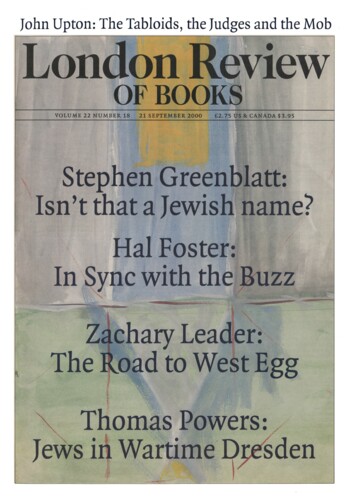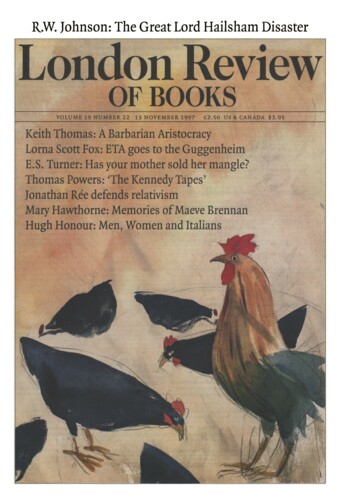A Thousand Mosquito Bites: Jews in Wartime Dresden
Thomas Powers, 21 September 2000
What all men know – that Hitler wanted, intended and tried to annihilate the Jews of Europe – was something largely hidden from the Jews themselves until the job was far along. Hitler had spoken clearly enough in Mein Kampf, but the slow, deliberate and secretive progress of his Government’s efforts somehow lulled his victims in Germany just as it misled and confused most of those who watched from abroad. The minor scholar and writer Victor Klemperer, a German Protestant by his own estimation but a Jew by Hitler’s, witnessed and recorded the disaster as it unfolded in Dresden. He was quick to see that Hitler’s monomania would destroy the Nazi regime, slower to realise that annihilation was Hitler’s goal, and almost – but not quite – fatally late to grasp that he would certainly be killed as well if he did not bestir himself.’


